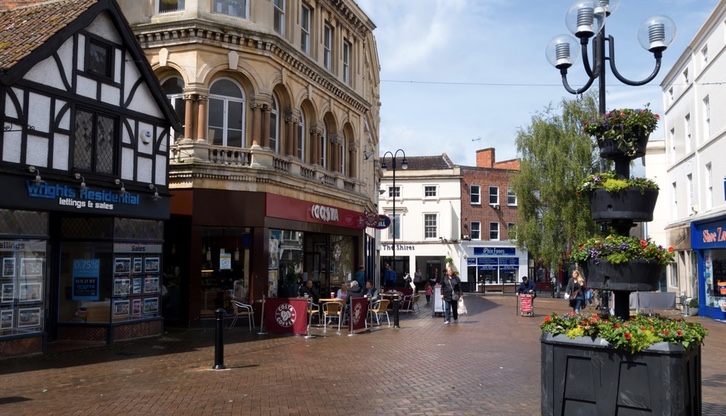The UPP Foundation has released two papers focused on the role of Universities post-covid in delivering on the national levelling up and build back better agenda.
The first focused on the impact of the covid crisis on employment and jobs, drilling into the detail of the geographical spread of this impact and looking at how it might be in part addressed by universities.
The second report looked at post-industrial towns in particular and outlined a number of recommendations that would see universities bring their neighbouring post-industrial towns into their civic activities.
The findings of the first report show that there are anticipated to be some very significant implications for employment levels and a large number of job losses as a result of covid, lockdown and the changing consumption and consumer behaviour patterns we have seen as a result this year.
This report looked in detail at the Government’s flagship commitment to its Lifetime Skills Guarantee, which will see it investing £2.5 billion in training. Through the scheme, any adult without a level three qualification is entitled to do a free college course.
However, the UPP Foundation argues that the criteria for eligibility to this scheme will exclude around 2.3 to 2.5 million non-graduates whose jobs are at risk but who already have level three qualifications. In addition, the course subjects, which are due to be announced in April 2021, are expected to be very tightly controlled, and feedback from potential learners suggests that they want both more variety in subjects and the opportunity to pursue higher levels of qualification through the scheme.
The report outlines that even in the most conservative of estimates, 5 million jobs are at risk nationwide as a result of a Covid-driven recession, and over 3.1 million of these are in low or medium-skilled roles. It also highlights that the climb back out of recession is increasingly being modelled by economists as being slower than was originally predicted.
The report drills down into the geographical impact of expected job losses, finding that certain towns across the country are at significantly higher risk - these are grouped into ‘shut down towns’ which are those that have been particularly affected by covid lockdowns and the closure of businesses, and ‘left-behind towns’ which are post-industrial areas which were already struggling with deprivation before the covid crisis hit.
The report warns that Universities run the risk of being seen by local people as inaccessible and having little to offer them - and that by placing themselves at the centre of the levelling up agenda they can begin to address this assumption.
The second report focuses on post-industrial towns and the role of universities in supporting their post-covid recovery. The report highlights that many of the identified ‘left-behind’ areas do not have a university in their immediate vicinity and that the benefits of higher education in the cities has not historically trickled down into neighbouring towns. In fact, universities contributing to the growth and development of the cities in which they are located might actually result in an even greater disparity between these cities and neighbouring towns.
As a result of the research carried out to produce this report, the UPP Foundation suggests five ways in which universities can help to address this imbalance and support post-industrial towns in their localities. These are:
- Town centre regeneration
- Jobs and economic localism
- Boosting educational attainment in schools and for adults
- Research and development of the local area
- Supporting the NHS
The report recognises that Universities cannot do this work without sufficient funding, and makes a number of recommendations for how the government could realign or allocate existing pots to support this agenda. It also makes recommendations for how universities can help to address the need for reskilling and in addition, how they might be resourced in preparation for any future health crises like Covid 19.
As part of the second paper, the UPP Foundation released a map of all of the left behind or shut down towns of Britain, highlighting which their nearest universities are and what their unique post-covid job situations are likely to be.
For us here in Bath, the closest town, and the one which doesn’t have any shared responsibility with another Unversity other than potentially Bath Spa, is Trowbridge. Others are Yate, which is covered by UWE and Bristol, and Swindon which can also be covered by the Royal Agricultural University and both Oxford universities.
In Trowbridge, there are expected to be significant job losses as a result of covid. The town has a high level of low and medium-skilled workers, making up 70 per cent of the workforce, and 25 per cent of the workforce has been employed in sectors heavily hit by lockdowns. With 13,000 jobs at risk, this represents around 33 per cent of the employees of the town.
We are taking this information to our next CUA Advisory Group meeting, to determine whether there is agreement that the University of Bath opens a conversation with anchor institutions in Trowbridge about the University’s role in the town. We hope to be able to report back to you soon on the outcome.
Respond

